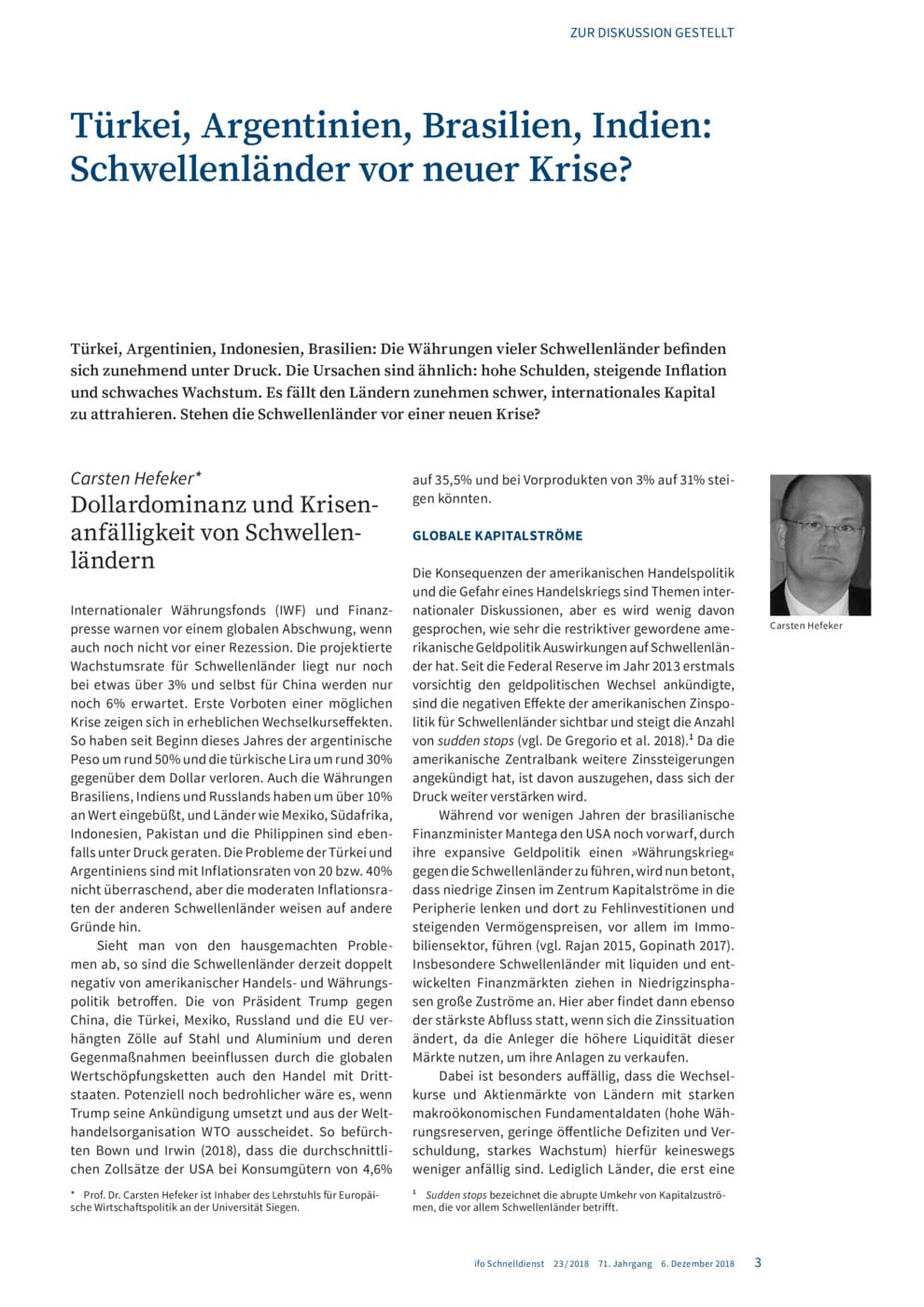Turkey, Argentina, Brazil, India: Are Emerging Markets Facing a Fresh Crisis?
ifo Institut, München, 2018
ifo Schnelldienst, 2018, 71, Nr. 23, 03-21

Turkey, Argentina, Indonesia, Brazil - the currencies of many emerging markets are coming under growing pressure. Its causes are similar: high debt, rising inflation and weak growth. Countries are finding it increasingly difficult to attract international capital. Are they facing a new crisis? Carsten Hefeker, University of Siegen, explains that emerging markets are currently doubly negatively affected by US trade and monetary policy. The implications of US trade policy and the danger of a trade war are topics of international discussion, but more restrictive American monetary policy also negatively impacts emerging countries. To reduce these negative effects, the Fed should take greater account of the consequences of its monetary policy. A more moderate interest rate policy would reduce the volatility of capital flows. Volker Treier, Deutscher Industrie- und Handelskammertag, Berlin, also sees the emerging markets burdened by higher US interest rates. However, most emerging markets proven more resilient than in the past. Turkey and Argentina are two special cases whose problems are primarily homemade, with an immense structural current account deficit burdening both countries. Ulrich Kater, Deka Bank, sees the emerging markets as an "integral part of the investment universe." Institutional and macroeconomic stability, as well as the development of the financial markets in these countries have made significant progress. Despite an increase in debt in the emerging markets in the years following the financial crisis, moderate financial ratios on average have ensured sufficient confidence in the emerging markets' financial markets. According to Jörg Krämer and Ulrich Leuchtmann, Commerzbank AG, a comprehensive crisis in the emerging markets is unlikely, even if crises in individual emerging markets cannot be ruled out. In most cases, the debt situation is not alarming and the monetary policy of the emerging markets has improved. However, the absence of a crisis does not mean that the emerging markets will return to the unusually high growth rates seen in the early 2000s. Valentin Lang, University of Zurich, examines the question of what effect crisis countries can expect when they join an IMF programme. Based on past experience, the IMF could counteract the loss of investor confidence in the short term and help to stabilise monetary and fiscal policy. In the long term, however, success would depend on whether the IMF were to impose reforms on the country that it could actually implement domestically. Reform programmes bringing with them sharp slumps in growth and whose burdens would be distributed unequally among the population would be doomed to failure. Klaus-Jürgen Gern, Institut für Weltwirtschaft, Kiel, notes that growth in emerging markets, which was the strongest driver of global economic expansion in the 2000s and the years immediately following the Great Recession, stalled some time ago. The crisis potential has increased as a result of increased debt. Growth momentum in the emerging markets can generally be expected to be curbed in the long term. However, a full-blown emerging market crisis, comparable to the Asian crisis of 1997, currently seems unlikely.